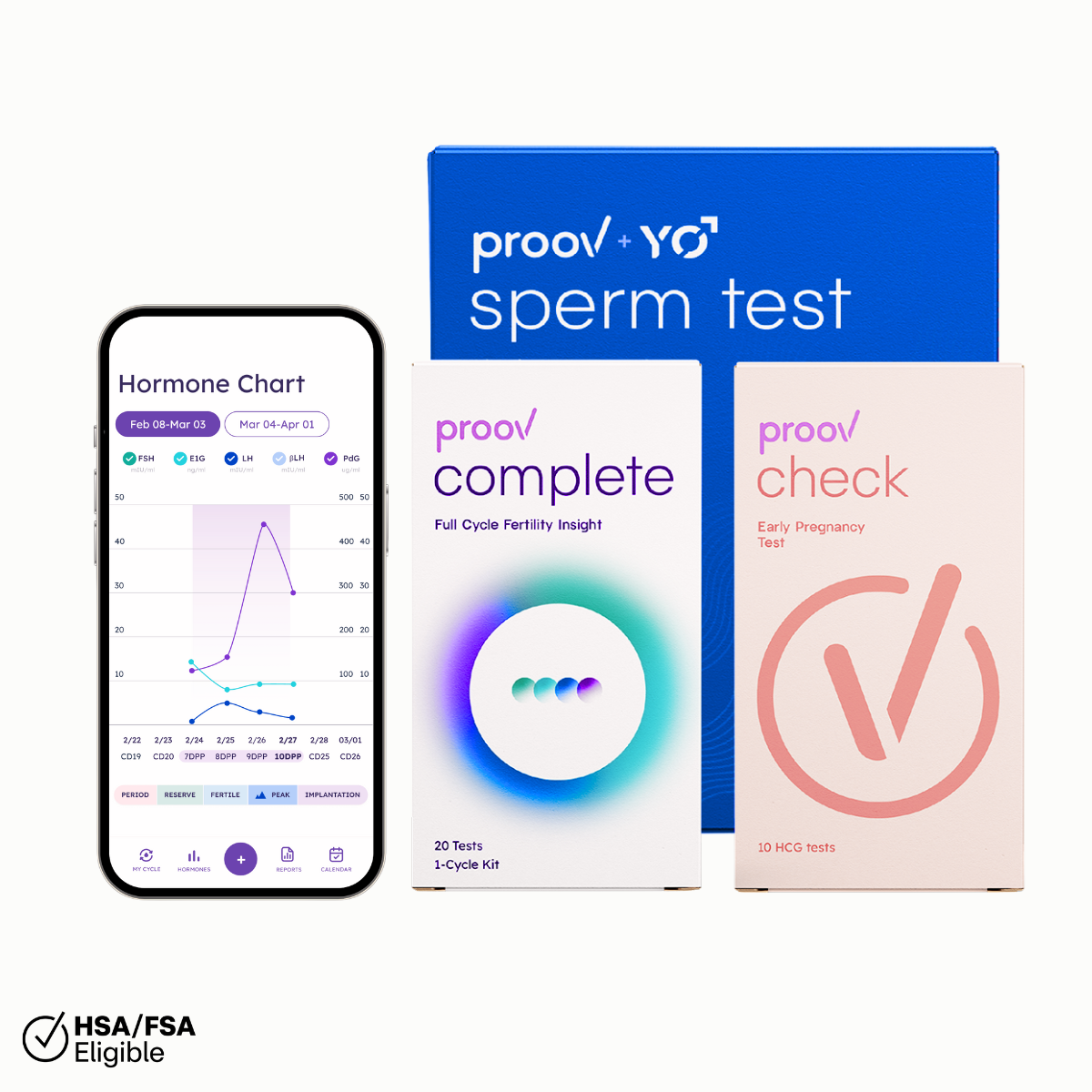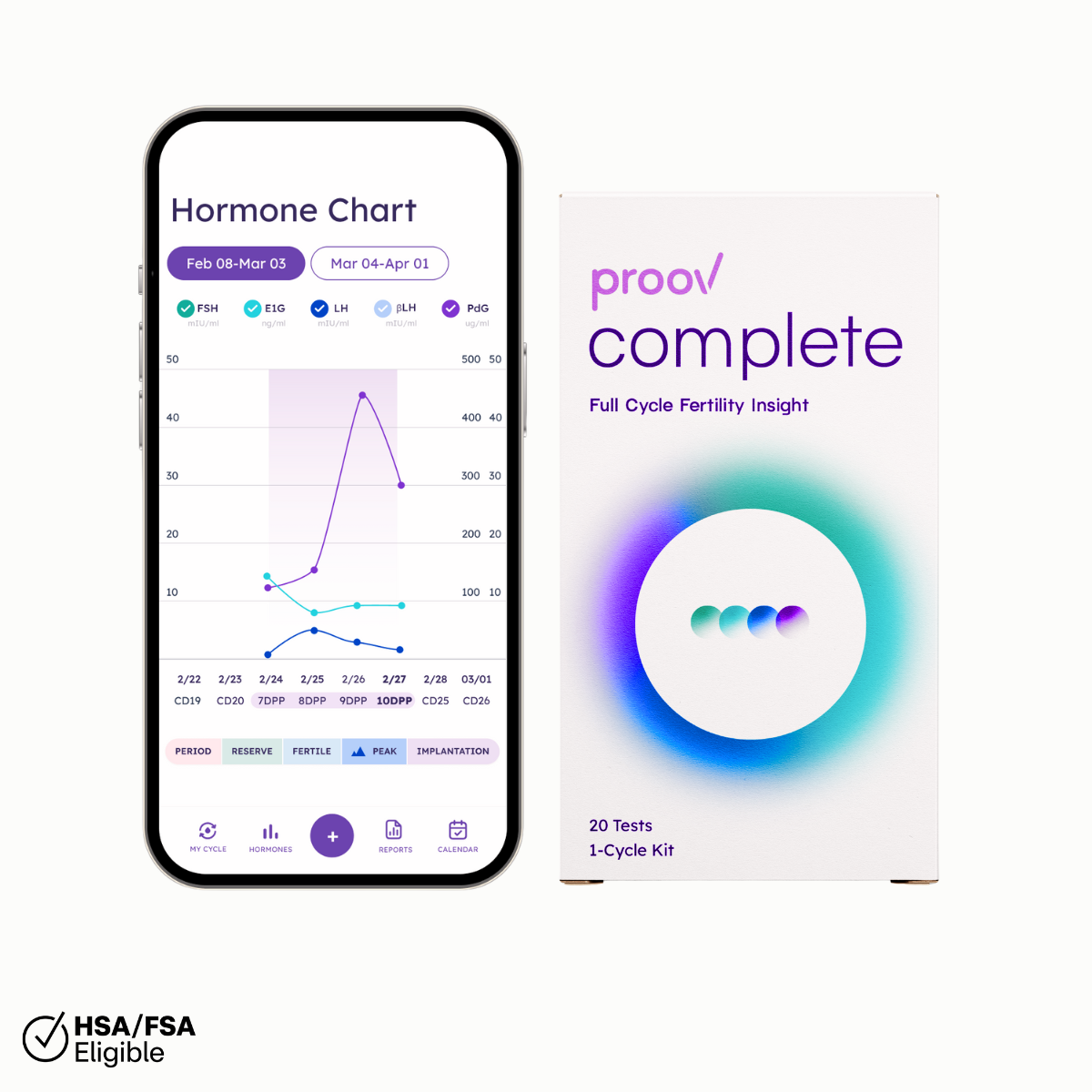Written by: Doveras, a navigation platform for preconception health, backed by science. Their first product focuses on naturally improving fertility potential with evidence-based, personalized lifestyle changes.

Keep reading to understand which lifestyle factors have the biggest impact on your fertility during the holidays.
From your great aunt’s unwanted questions about your family-building timeline to tracking your cycle while traveling, trying to conceive during the holidays can be stressful. But one thing that you can feel confident about is enjoying the holiday feasting and still supporting your fertility.
Our friends at Doveras have looked at over 100,000 clinical studies to understand what lifestyle factors actually have the biggest impact on your fertility. Here are their top fertility-friendly-feasting tips:
Save The Carbs For Last
Chances are you’ll probably be eating a bit more than usual over the holiday season. Don’t stress! It’s to be expected. But one simple thing you can do is help your body maintain blood sugar balance.
Why? Your blood sugar control affects critical hormones for ovulation, such as LH (luteinizing hormone) and estrogen. To prevent the blood sugar rollercoaster, try eating your protein or veggies first. Then move onto those mashed potatoes.
A few studies in people with pre-diabetes and diabetes support this approach, pointing toward less of a blood sugar spike after your meal (AKA better blood sugar control and happier hormones).
(When it comes to carbs, bonus points for sweet potatoes over regular potatoes! Carb-wise, they’re fairly similar, but the bright orange color of sweet potatoes tells you that they’re loaded with fertility-friendly antioxidants. Check out the fertility science on carbs here).
Skip The Scented Candles
Despite their ambiance, scented candles don’t have your best fertility interests at heart. Scented candles emit chemicals like phthalates and volatile organic compounds, which have both been linked with reproductive dysfunction. Exposure to phthalates in particular has also been associated with a lower probability of conception in couples undergoing IVF.
But you can still achieve the holiday atmosphere! Try dimming the lights (or try a string of LED fairy lights if you don’t have dimmers), using a diffuser with essential oils (think cinnamon, cloves, orange and pine), or making a DIY holiday scent by poking dried cloves through the skin of a whole, fresh orange.

Despite their ambiance, scented candles don't have your best fertility interests at heart.
Choose Your Booze
When it comes to fertility, alcohol consumption in moderation doesn’t seem to have that much of an impact. So you shouldn’t feel like you have to abstain from drinking while trying to conceive during the holidays!
But there are better and worse alcohol choices for supporting the hormones at the heart of your reproductive system. General rule of thumb: swap sugary drinks and beer for “smoother” spirit-forward drinks and low-sugar wines. Why? Sugary drinks like cocktails, as well as carb-forward beer, can set off that same blood sugar roller coaster we talked about previously. Your hormones will thank you.
Say Yes To Cranberry Sauce
Cranberry sauce gives you a hearty dose of antioxidants to match your hearty meal. Antioxidants are crucial to prevent damage to your egg and sperm cells while they grow, divide, and mature. Even after processing and cooking them, the antioxidant activity of cranberries is seriously impressive (even higher than blueberries, blackberries and raspberries). Lean in!
Chestnuts (Or Any Nuts) Roasting On A Low Heat Fire
Nuts and seeds are a fertility superfood! For people with eggs and ovaries, a number of studies show trace minerals found in nuts and seeds (like selenium, zinc, and iodine) may be especially important for ovulation. Plus, omega-3s that many nuts and seeds contain can support menstruation, and may be particularly helpful for progesterone production. For people with sperm, these nutrients are great for sperm quality and support a healthy sperm production process.
When it comes to the holiday favorite, chestnuts are particularly packed with Vitamin C, which is great for sperm quality and protection from DNA damage during the sperm production process. Plus, they’re a great source of beta-carotene which is crucial for egg fertilization.
But we wouldn’t recommend roasting them on an open fire. Chestnuts do seem to lose some of this fertility-boosting nutritional content when roasted on high heat. But, if you roast them at lower temperatures you lose less!

Chestnuts may lose some of this fertility-boosting nutritional content when roasted on high heat.
Avoid Boiling Your Green Veggies
Across numerous high-quality studies, folate consistently emerges as one of the most critical nutrients for female fertility. One reason for folate’s importance may be because it can impact your luteal phase progesterone levels.
Dark leafy veggies are a great source of folate, but how you cook them matters: avoid boiling. Folate is water-soluble, meaning that it can leach out into water. Add prolonged, high heat and you’ve got a one-two punch that drastically decreases folate levels. Instead, mix up your cooking methods for your veggie side dishes to preserve as much folate as you can. Our go-to, folate-rich veggie sides are roasted Brussels sprouts and a spinach salad.
Swap Out Plastic Containers
There seems to always be extra food over the holidays. While this can make meal prep a breeze, how you store and reheat your leftovers could be impacting your fertility.
A typical path for leftovers would be plastic container, fridge, microwave, belly… right? Unfortunately, plastics contain a number of chemicals that can disrupt your hormones, and therefore your fertility. This holiday season, make the switch to glass or stainless steel storage containers. We recommend glass for convenience so that you can store, heat, and eat your food all with one dish.













